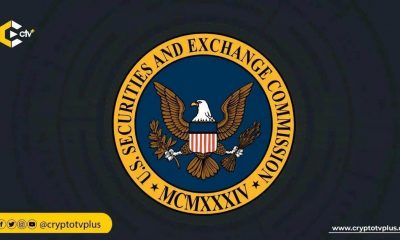News
Nigerian SEC expands cryptocurrency rules; what you should know

The Nigerian Securities and Exchange Commission (SEC) has updated its Digital Assets Rules, expanding regulations to cover a wider range of cryptocurrency-related activities and business models. These new rules address areas such as cross-chain transfer services, virtual asset investment advice, and financial portfolio management.
The updated guidelines now include regulations for cross-chain transfer services, which involve moving virtual assets between different blockchains, as well as on-chain and off-chain transmission of orders, which manage digital asset orders across blockchain and non-blockchain platforms.
Additionally, the rules now govern placing and distributing virtual assets to the public, providing advisory services on virtual asset investments, and managing financial portfolios involving digital assets.
The SEC also introduced new requirements for issuers of digital securities, stablecoins, and cryptocurrencies. Companies seeking to issue these assets must follow clear guidelines. However, anonymity-enhanced or privacy-enhanced cryptocurrencies remain prohibited in Nigeria due to concerns over their potential misuse.
The new rules address how virtual assets are advertised, marketed, and promoted, particularly on social media. Influencers, often called “Finfluencers,” must adhere to specific regulations when promoting digital assets to the public. This includes disclosure failing, which shall result in a penalty of not less than N10 million, up to 3 years imprisonment, or both.
The revised rules also require digital asset intermediaries—businesses that facilitate transactions or services involving digital assets—to register with the SEC.
To help digital asset companies operate within a regulated environment, the SEC has launched the Accelerated Regulatory Incubation Program (ARIP). This program allows companies to test their products and services under the commission’s supervision before full approval is granted. Under the ARIP, the SEC in August granted approval-in-principle to two firms, Busha Digital Limited and Quidax Technologies Limited.
Nigeria’s Crypto Stance Over the Last Three Years
Over the past three years, Nigeria has adopted a cautious stance toward cryptocurrencies. In 2021, the Central Bank of Nigeria (CBN) prohibited banks and financial institutions from processing cryptocurrency transactions.
This decision was driven by concerns over fraud, money laundering, and economic instability. The ban pushed many businesses and investors toward peer-to-peer (P2P) trading platforms as alternatives.
Despite these restrictions, cryptocurrency adoption in Nigeria continued to grow rapidly, with the country becoming one of the global leaders in digital asset usage. In response, the SEC introduced its first set of rules for digital assets in 2022. These rules marked an effort to regulate the market and protect investors while acknowledging the growing role of digital finance.
The current revisions to the Digital Assets Rules signal the government’s gradual acceptance of digital financial tools. However, the continued ban on anonymity-focused cryptocurrencies shows that concerns about illegal activities remain a priority.
The SEC invites public input on these updates. Please send comments and suggestions to the SEC Rules Committee at rulescommittee@sec.gov.ng within two weeks of this announcement.

























2 Comments